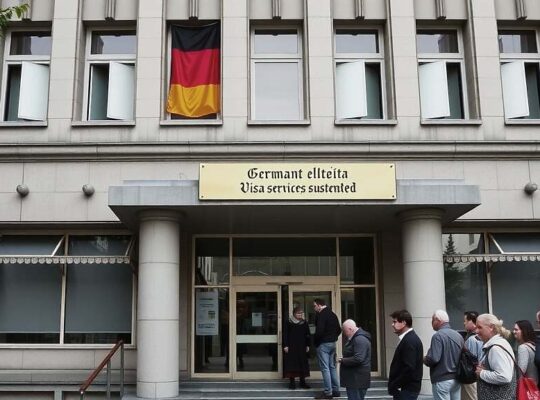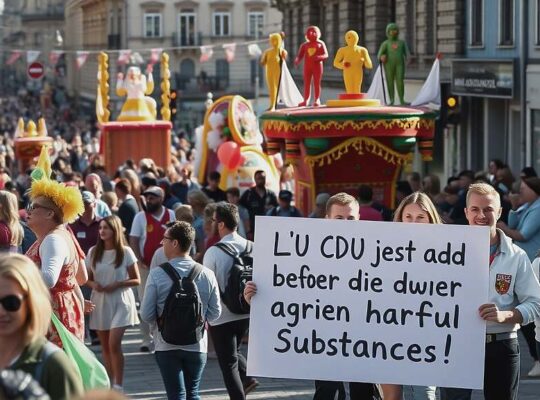Concerns are growing within the Christian Democratic Union (CDU) following recent polling data, suggesting a potential shift in the German political landscape. Dennis Radtke, head of the CDU’s worker’s wing, expressed these concerns in an interview, warning that the party risks being squeezed between the far-right Alternative for Germany (AfD) and the left-wing Die Linke. He described the current polling figures for the governing coalition as “dramatic.
According to current projections, a national election held today would likely result in the Union and Social Democratic Party (SPD) coalition losing its majority. Radtke highlighted a concerning trend, noting that two German state parliaments already lack a governing majority. He cautioned against attributing this situation solely to the 2015 refugee crisis and the COVID-19 pandemic, arguing such an assessment is both inaccurate and dangerous.
Radtke pointed to upcoming local elections in North Rhine-Westphalia – Germany’s most populous state – as a crucial test. He observed a significant decline in CDU support since the last local elections in the region, when the party polled at 38% nationally, compared to the current 25%. He criticized what he characterized as a self-satisfied approach within the party, stating that optimism alone is insufficient to address the current situation.
The CDU politician called for a recalibration of the party’s platform, emphasizing the need for a clearer focus on external security, internal security and social security. While acknowledging the Chancellor’s success in restoring Germany’s international standing, he voiced a desire for a more coherent and optimistic vision for domestic policy. Radtke argued that the promise of social mobility that underpinned Germany’s post-war democratic consolidation has eroded over the past two decades.
He highlighted the increasing difficulties faced by young professionals in finding affordable housing, forcing many to live with their parents or in shared accommodations. The shrinking affordability of homeownership for the middle class is also a significant concern, potentially driving voters towards Die Linke, despite their ineffective proposed solutions.
Radtke also identified the AfD’s appeal as stemming not only from its focus on immigration but also from its anti-establishment rhetoric and a sense of political and cultural alienation among working-class voters. He acknowledged a historical failure by the Social Democratic Party (SPD) to retain support within this demographic, but insisted that the CDU must also capitalize on this disconnect.
He proposed a focus on housing affordability as a central tenet of the government’s policy agenda, advocating for tax incentives for company-provided housing, a deregulation of building codes and the implementation of rent-to-own schemes similar to those in Austria. These measures, he believes, could stimulate much-needed momentum and address a critical concern for a broad section of the population.












